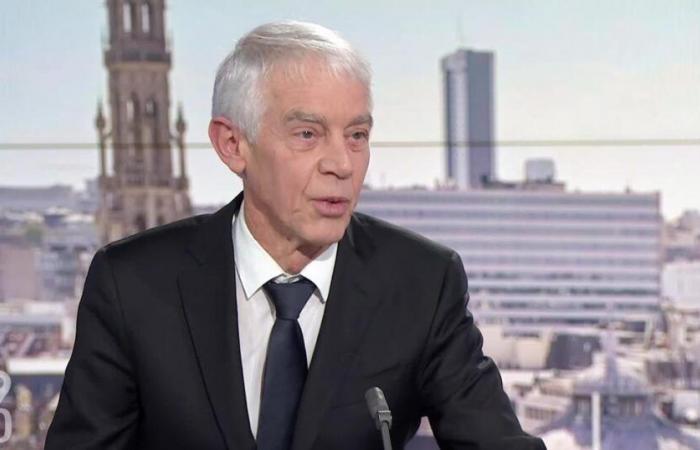With the end of negotiations for new agreements with the European Union announced on Friday, Switzerland could return to the Europe of research. Invited on the 7:30 p.m. of RTS, the outgoing president of EPFL Martin Vetterli is delighted, despite the political challenges to come.
“It’s a very nice Christmas present,” says Martin Vetterli, who has been following this issue since 2014. That year, Switzerland was excluded from European research programs and Erasmus exchanges, following the vote on the mass immigration.
After normalization in 2017, Switzerland is excluded again in 2021, when the Federal Council pulls the plug on the framework agreement with Europe. Despite everything, this image damage can be repaired, believes Martin Vetterli.
“Switzerland's reputation in research is absolutely excellent. I think that this is also what helped the European Union to let us return to these European programs,” he adds.
Same study fees
The new agreement associates Switzerland with EU programs in favor of training, research and innovation. It covers participation in Horizon Europe, Euratom, the ITER research infrastructure and the Digital Europe programme, Erasmus+ and EU4Health.
Future participation in other EU programs is also open, for example in the areas of culture and space operations.
The agreement also provides that European students pay the same taxes as Swiss students. “For the Swiss academic community, this is good news, because we have always seen students as a source of talent and not a source of income,” says Martin Vetterli.
>> Read also: The Swiss-EU agreement welcomed in Bern by Ursula von der Leyen and Viola Amherd
Dangerous paradigm shift
However, he warns of a potential increase in study costs for all students, including the Swiss, that this clause could cause. “It is a sword of Damocles that exists, since with the financial problems that we currently have in Switzerland, it is under discussion,” indicates the president of EPFL.
>> Read also: An agreement with the EU could cost Swiss universities 46 million
Such a decision would not be beneficial for the scientific world, he emphasizes. “It’s a paradigm shift. We have always seen education as an investment in the future,” he explains. “If we decide that people have to pay for their education, it's an Anglo-Saxon model and we know where that leads. You only have to see the political results in the countries that you can guess,” says -he.
Martin Vetterli therefore recommends a “real democratic debate on the question, before simply, for short-term budgetary reasons, making such a decision”.
“Working together”
Furthermore, the outgoing president of EPFL highlights another political challenge. Switzerland's full participation still hangs on three threads: funding to be released, approval from Parliament and popular votes.
In order to convince the people, “we will all have to work together and clearly explain why it is important”, estimates Martin Vetterli, who says he defends “research, education, the free movement of researchers and the free circulation of ideas”.
Comments collected by Fanny Zürcher
Web adaptation: Emilie Délétroz






